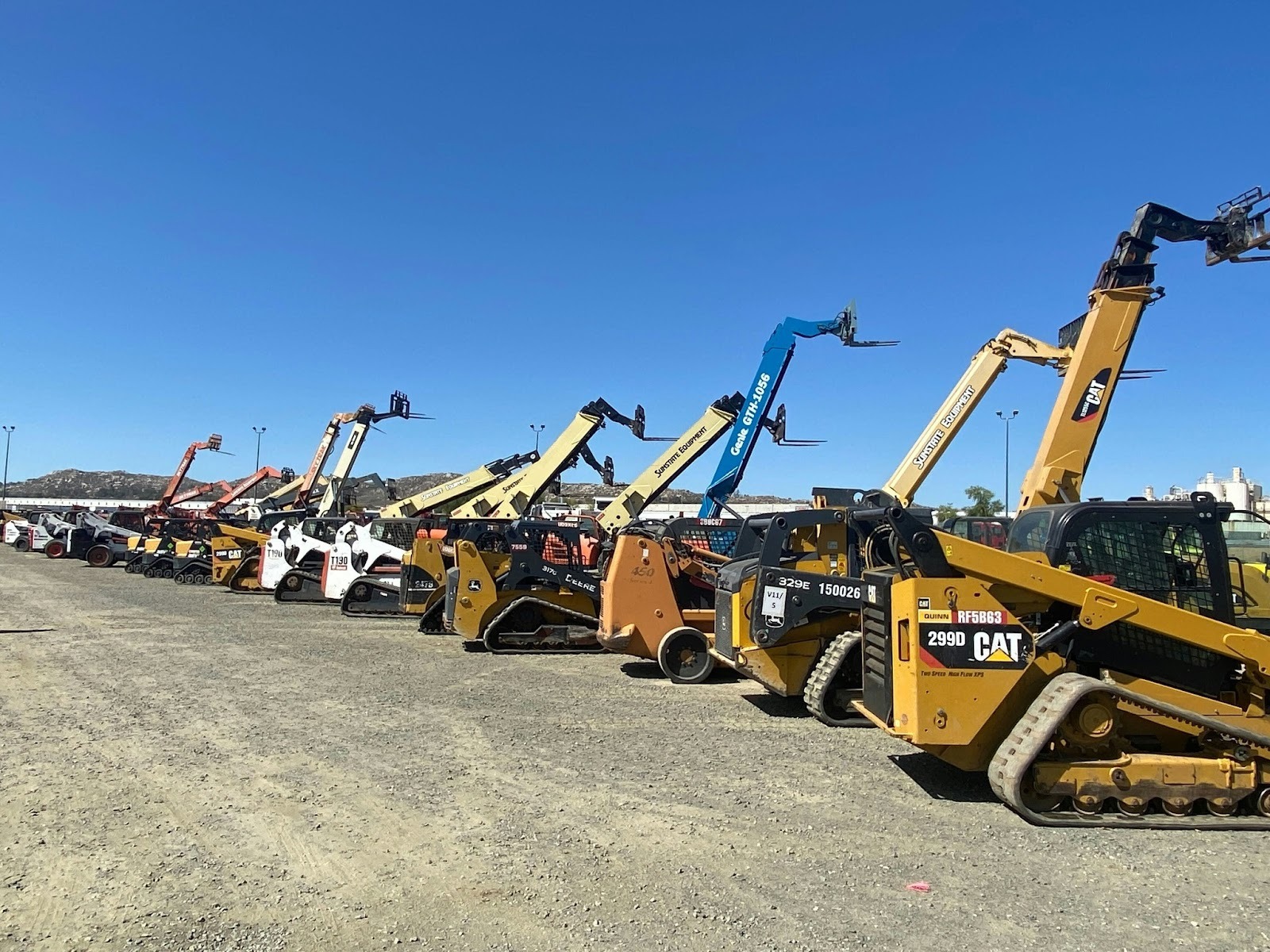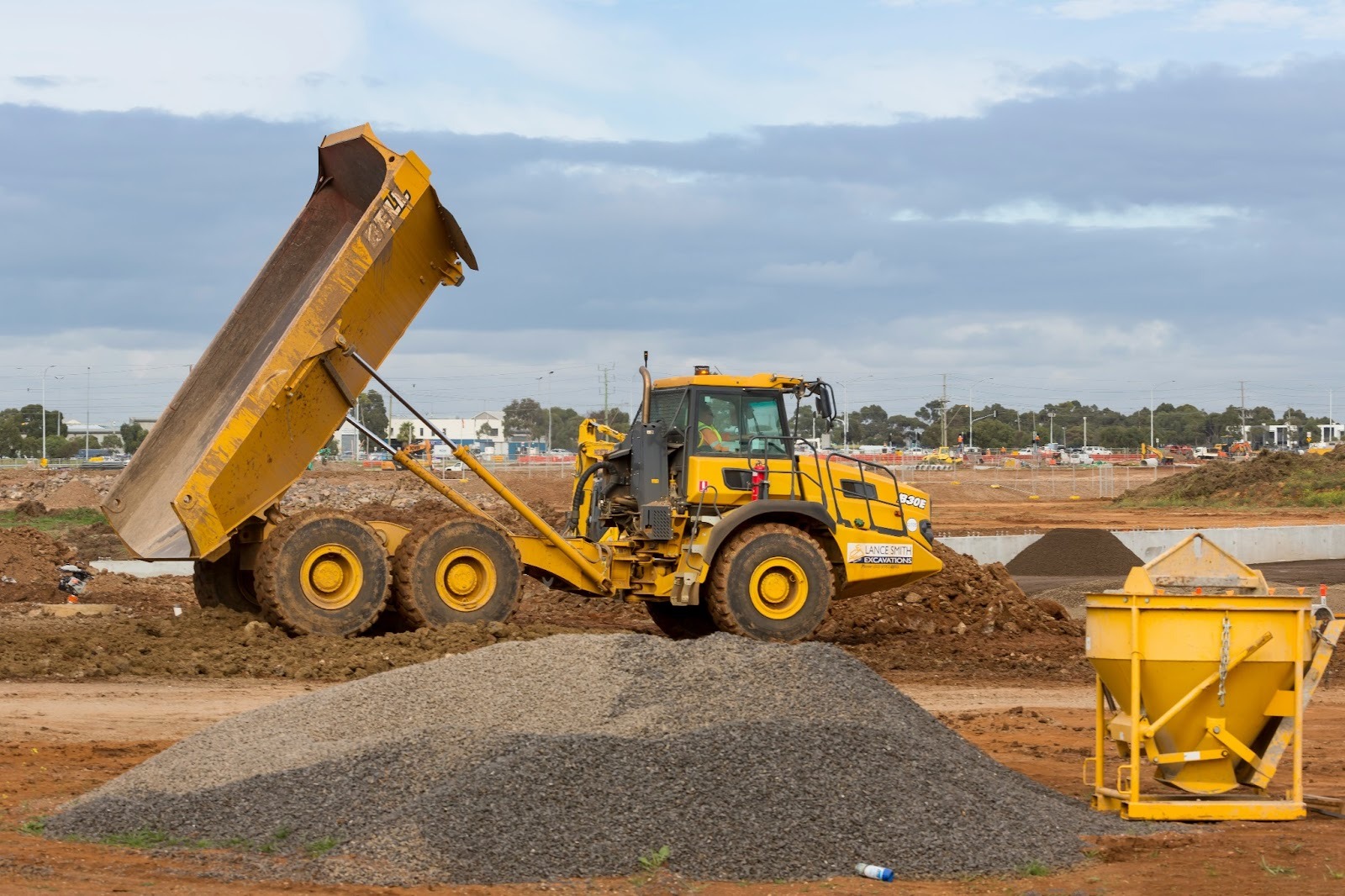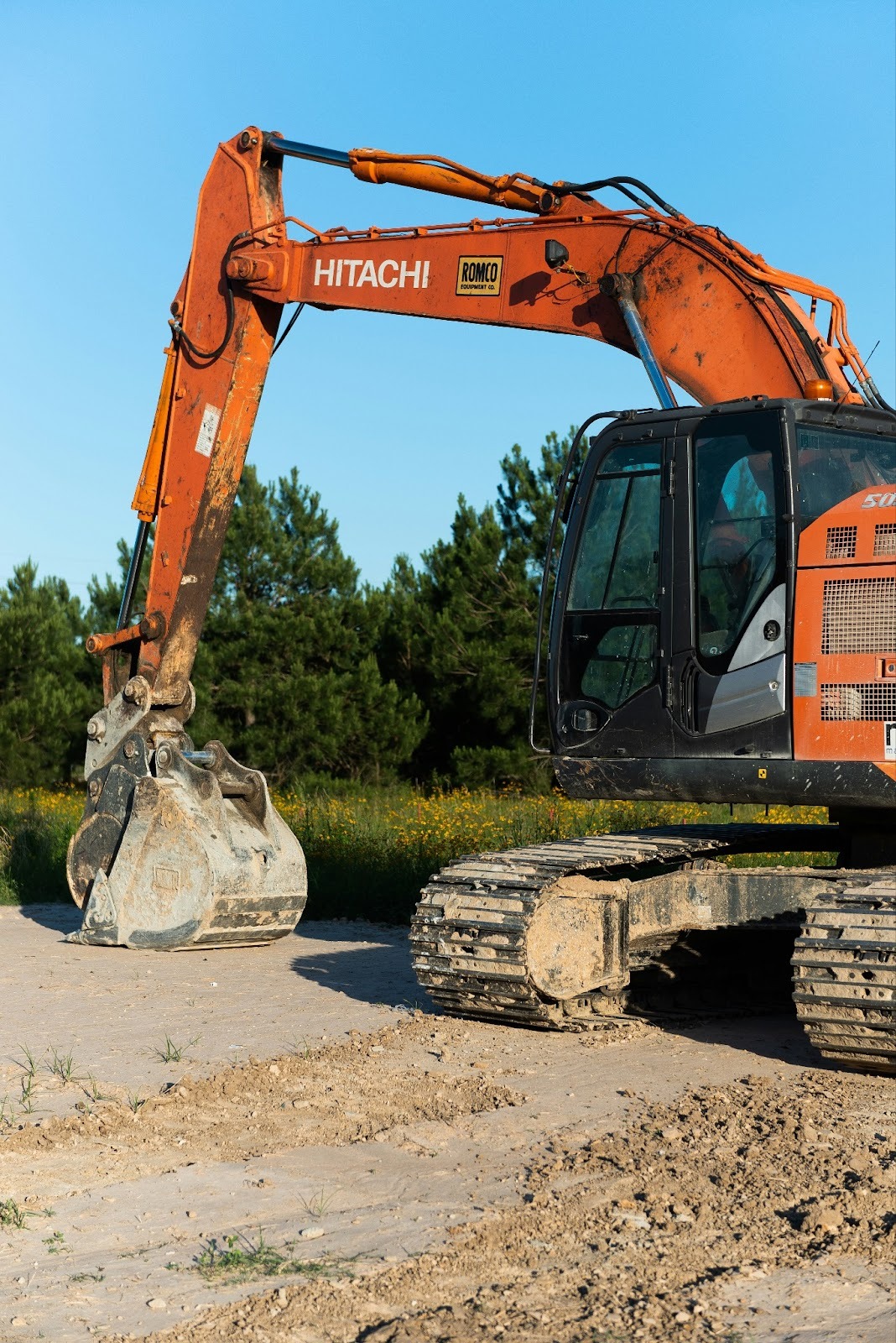Discover why project delays often start in the yard. Learn how equipment uptime, maintenance, and hydraulic cylinder reliability shape jobsite performance.

At Cylinders, Inc., we talk a lot about equipment uptime — and for good reason. In today’s construction environment, uptime plays a major role in keeping projects on track and costs under control.
Many project managers focus on on-site operations, but true jobsite efficiency often starts in the yard, before your equipment heads out to site.
Whether you’re managing a fleet of excavators, loaders, cranes, or lifts, it is your equipment readiness that ultimately determines whether your crews are moving forward — or standing still.
Project delays often trace back to one overlooked detail — the machinery itself, particularly the hydraulic and pneumatic systems whose cylinders keep operations in motion while bearing significant mechanical stress.
In this article, we’re exploring why equipment uptime is more than just a maintenance metric, how downtime erodes project profitability, and what industry leaders are doing to ensure their fleets remain a source of strength, not vulnerability.

Downtime is not just a mechanical inconvenience; it’s a financial liability.
Every hour of lost production on a large-scale construction project can mean thousands of dollars in labor, fuel, and opportunity costs — and when equipment fails unexpectedly, those costs multiply as schedules, subcontractors, and client confidence are disrupted.
For Construction Pros underscores just how costly downtime can be in their True Cost of Unplanned Equipment Downtime article:
“It’s not uncommon in the industry for unplanned equipment downtime to reach 20–30 percent when preventive maintenance is neglected. Companies that rigorously track and execute preventive maintenance can reduce unplanned downtime to around five percent.”
— For Construction Pros (Greg Norris, citing Dan Corbett of Lancaster Development)
While their research doesn’t pinpoint an exact dollar-per-hour cost for a hydraulic cylinder failure, we can offer a reasonable estimate based on available data.
For a mid-to-large excavator or other heavy hydraulic-equipment in the field, downtime costs often range between $150 and $400 per hour just for the machine itself (not counting crew idle time, subcontractor delays, or downstream impact).
So if a hydraulic cylinder fails unexpectedly, the machine sitting idle for even one hour could cost $200–$350/hr on average in many cases, depending on size, hourly operating rates, location, and attachment value.
Pinpointing a dollar-per-hour cost for hydraulic cylinder downtime is challenging because every operation is different. Equipment type, repair severity, and operating costs vary widely between machines and sites. Add in logistics, technician travel, and lost crew productivity, and the true cost can multiply far beyond the repair itself.
Ultimately, every situation is unique — which is why industry estimates are best seen as informed ranges, not absolute figures. But for plant maintenance managers and fleet directors, that nuance highlights a simple truth: uptime is both a financial strategy and a technical goal.
The most effective companies don’t just chase lower repair costs — they invest in preventive maintenance to protect productivity, control expenses, and keep projects on schedule and within budget.

While equipment failures show up on the jobsite, their origins often lie back in the yard.
Deferred maintenance, missed inspections, or reliance on temporary fixes create hidden weaknesses. These issues often reveal themselves only under the demanding conditions of construction work — and usually at the worst possible time.
Hydraulic cylinders are a prime example. They are the workhorses of heavy machinery — enabling lifting, pushing, and stabilizing functions. While a cylinder seal failure, scored rod, or internal leak may seem minor at first, if left unaddressed, these issues can quickly escalate into complete equipment shutdowns.
Downtime doesn’t suddenly appear on-site — it accumulates silently in your depot. The companies that stay ahead are those that prioritize precision repairs, rigorous inspections, and vendor partnerships focused on quality and long-term reliability.

The best-run construction firms in the U.S. view equipment uptime as a strategic differentiator.
They recognize that:
This approach reframes maintenance from a cost center into a profit protector.
When uptime becomes part of your strategic planning, your firm will consistently outperform your peers in both project delivery and client satisfaction.

From excavators to aerial lifts, hydraulic systems sit at the heart of nearly every major construction machine.
Cylinders, in particular, are mission-critical. A single failed cylinder can sideline an otherwise operational piece of equipment, immediately stalling productivity.
Consider the following examples:
Every one of these failures directly connects to uptime, cost control, and overall jobsite performance.
That’s why, for our team, precision repairs, adherence to exact tolerances, and rapid turnaround times are non-negotiable when it comes to hydraulic cylinder service.

One of the critical factors shaping uptime is the balance between repair speed and repair quality.
A quick fix that fails to address the underlying root cause may restore short-term functionality, but it increases the likelihood of repeat failures and can escalate into significantly more expensive or catastrophic repairs over time.
At Cylinders, Inc., repair excellence means combining rapid response with engineering precision. We align with your operations team to deliver repairs that meet tested performance standards, extend service life, and return equipment to the field on schedule.
This approach helps plant maintenance and fleet managers avoid choosing between downtime now or downtime later, giving them confidence that their repaired cylinders will perform reliably under the demands of jobsite conditions.

Maintenance isn’t just a line item — it’s a profit driver.
When practices are inconsistent or reactive, the total cost of ownership (TCO) for equipment skyrockets, eating into margins and creating operational headaches.
Smart, structured maintenance plans — executed with expert partners — turn the tide by:
For forward-thinking construction leaders, every reliable component — even a single cylinder — influences bid success, project margins, and company reputation.
Maintenance, done right, transforms operational reliability into financial performance.

The most successful construction companies aren’t reacting to downtime — they’re anticipating it.
They implement predictive maintenance technologies, partner with specialized repair vendors like us, and build redundancy into fleet management strategies.
Taking a proactive approach keeps projects running smoothly, even under pressure, and encourages maintenance managers and operations leads to think strategically: Are our inspection protocols catching early signs of cylinder wear before they become problems? Do we have fast, reliable access to trusted repair partners when issues arise? And is our maintenance spend designed to reduce long-term costs, not just patch immediate needs?
These are the questions that turn routine maintenance into a true driver of operational efficiency and project success.
By shifting the conversation from “what failed today?” to “what can we prevent tomorrow?”, construction leaders protect not only equipment, but also revenue streams and reputation.

In U.S. construction, readiness isn’t just about having equipment available — it’s about having it dependable.
In our experience, project delays often begin quietly in the yard, long before the first shift starts.
For fleet directors, plant maintenance managers, and ops leaders, the solution lies in treating uptime as a measure of both operational discipline and financial stewardship.
Hydraulic cylinders may be small components compared to the machines they power, but they represent a disproportionate share of downtime risk.
By working with a trusted partner like us, you can ensure your hydraulic systems perform reliably, repairs are executed with precision, and downtime becomes the exception rather than the norm.
Our formula is simple: Uptime in the yard = Success on the jobsite.
Explore articles on cylinder repair, maintenance best practices, and manufacturing insights.
To all who’ve been part of our journey this year,As we come to the close of another year, I would like to take a moment to thank you — our valued customers, partners, and colleagues — for the continued trust you place in Cylinders, Inc. Every day, our team has the privilege of supporting the businesses that keep America’s construction, industrial, and manufacturing sectors moving. It’s a responsibility we take seriously, and one we work hard to uphold with every repair, inspection, and consultation.
When winter takes hold across the United States, it’s more than just a dusting of white that greets commuters, it’s a full-scale challenge to keep roads open, fleets operational, and heavy machinery ready. Many U.S. states see between 40 and 70 inches of snow each year, with Vermont averaging about 89 inches annually and Michigan […]